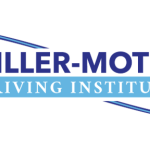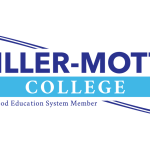Online learning provides flexibility and convenience, allowing individuals to pursue their education from the comfort of their own home. Developing productive and effective study habits can help you make the most of your online learning experience. With a few tweaks to your daily routine, you can make the most of your study time, stay engaged with the material, and more effectively retain information.
Here are a few tips that can help you make the most of your online learning experience.
Pick a Dedicated Study Time
To create a routine, establish a dedicated study time that works for you, ideally at the same time every day. During this time, have minimal outside distractions, so you can focus fully on your studies during the time frame.
Incorporating dedicated study time into your routine can make studying a habit rather than something to put off until the last minute. It may take a few attempts before you find a time slot that works for you, so be patient with yourself until you find the right fit.
Rather than staring blankly at a computer screen all day, setting specific times for focused studying can increase productivity and your ability to recall information at a later time. Incorporating breaks into this time, since studying in intervals gives you more time to process more complex content and minimizes mental fatigue, can help you stay focused during study sessions and reduce cramming.
Setting a timer for your breaks can also be helpful since it gives you a clear signal when your study time is up and you can walk away. By doing this, you can optimize your study sessions, study each day rather than cramming at the last minute, and get the most out of your online learning.
Develop Active Study Techniques
Developing active study techniques allows you to engage more deeply with your material and identify knowledge gaps that may exist. Actively interacting with the material can help you enhance your understanding and improve retention.
Summarize Material and Make Mnemonic Devices
Summarizing material in your own words can help reinforce your understanding of key points and help break down complex concepts into simpler forms. Creating mnemonic devices, such as acronyms, rhymes, or images, can be a fun and effective way to remember abstract ideas like “ROY G BIV” is used to remember the order of colors in the rainbow. Creating your own mnemonics can help you better connect with your coursework and improve your memory.
Teach Yourself (and Others)
Teaching concepts to your peers in group study sessions allows you to deepen your understanding of the material. Acting as the teacher, you can find new ways to simplify and explain the material, forming connections and creating analogies that make it easier for your peers to grasp the core concepts.
If you are studying alone, you can still practice teaching the material to someone else in your home. Explaining concepts to someone with no prior knowledge of the topic and seeing how accurately they can repeat key concepts back to you can be a fun and effective way to reinforce your understanding.
Active Reading
As you read, jot down any questions you may have, take notes, and summarize sections to identify learning gaps. Creating diagrams or flowcharts can help visualize connections between different topics and improve your overall understanding. Be sure to highlight key ideas as you come across them to stay actively engaged and avoid passively skimming the content throughout your study session.
Improve Time Management Skills
Procrastination can happen to the best of us.
Building strong time management skills can make sticking to a regular routine and completing tasks in a timely manner much easier. Procrastination can occur because you overestimated the time required to complete a task, are uncertain about how to approach it, fear not achieving perfection on the first attempt, or are waiting for the perfect moment to begin.
Fortunately, improving your time management skills can help reduce your chances of procrastination.
Start by tracking the dates of major projects, quizzes, and exams in a planner or your phone calendar once you have your course schedule to stay on top of upcoming deadlines. Working backward from these deadlines, you can create smaller, more manageable deadlines and tasks that contribute to the larger goal. Breaking down the tasks into smaller steps can make them less overwhelming and reduce anxiety or stress you may feel before getting started.
Creating time blocks to accomplish these smaller tasks provides actionable next steps to complete, rather than feeling overwhelmed by a large project or assignment. You can further prioritize and organize tasks based on their urgency and importance, allowing you to focus on the most pressing assignments first.
Setting aside dedicated study time each day, whether it’s in between classes or after school, is crucial. This consistency avoids cramming all your studying into one day and leads to better retention of information. Incorporating activities that bring you joy into your schedule can also help avoid delaying gratification. Instead of waiting until after completing a ton of tasks to go for a walk, make time for it in your busy schedule. Taking breaks and engaging in activities you enjoy can refresh your mind and enhance focus when you return to your work.
Prioritizing self-care is equally important while balancing schoolwork. Make sure to get enough sleep, engage in regular exercise, and eat nutritious meals. These healthy habits can boost your energy levels and improve focus, ultimately leading to more productive study sessions.
Remember, if you’re struggling with a particular subject or assignment, don’t hesitate to seek help. Many schools offer tutoring services or have teachers available for extra assistance. Utilize these resources and ask questions when needed to give yourself the best chances of success during your studies.
Further Your Education Online at Miller-Motte® College
Miller-Motte’s online programs offer quality education while fostering a compassionate, supportive learning environment that empowers students to thrive. Through discussion boards and group projects, students have the opportunity to engage with their peers, exchange ideas, and collaborate on assignments. This interactive approach encourages meaningful interaction and enhances the overall learning experience.
Moreover, we understand the importance of academic support in facilitating students’ success. Throughout our program, students have access to a range of resources and tutoring services to help them better grasp the course material. Whether it’s seeking clarification on a challenging topic or needing extra guidance with assignments, dedicated academic support staff are readily available to provide assistance for growth and understanding.
Furthermore, we’re committed to supporting students beyond their academic journey. Career Services offers professional development and support in job hunting, equipping students with skills and resources for a successful transition into their careers.
Interested in learning more about our online programs and how they work? We are here to help! Give us a call at 800-705-9182 or simply submit this form to get started on your educational journey with Miller-Motte.
Disclaimer: Information within this blog is for general information purposes only. MMC does not assume or guarantee certification/licensures, specific job/career positions, income earning potential, or salary expectations based on the programs offered at MMC. Career and program information statements in this blog do not guarantee that programs or other information mentioned are offered at MMC.
Information within this blog is for general information purposes only. Miller-Motte does not assume or guarantee certification/licensures, specific job/career positions, income earning potential or salary expectations based on the programs offered at Miller-Motte. Career and program information statements in this blog do not guarantee that programs or other information mentioned are offered at Miller-Motte.




